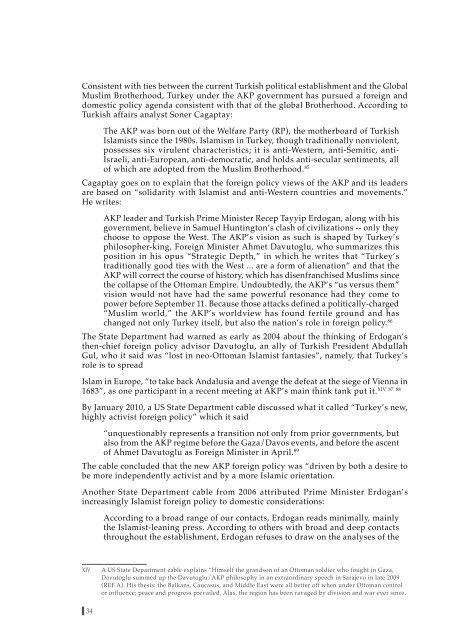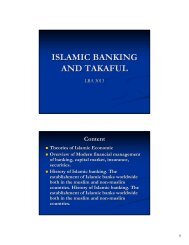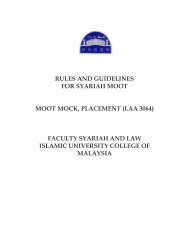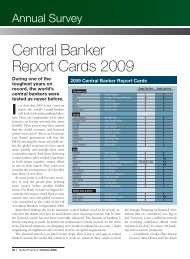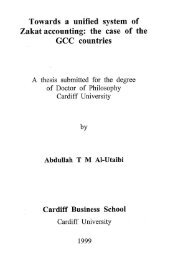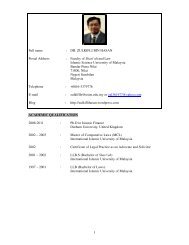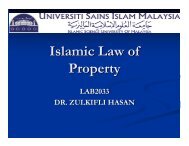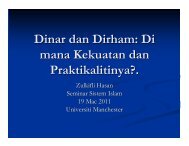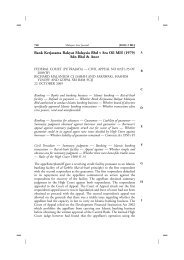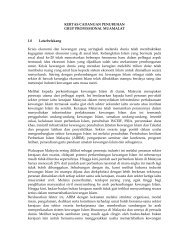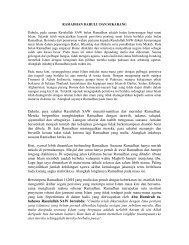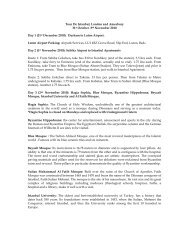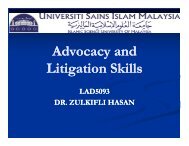Report of Israeli Think-Tank on the Global Muslim Brotherhood
Report of Israeli Think-Tank on the Global Muslim Brotherhood
Report of Israeli Think-Tank on the Global Muslim Brotherhood
You also want an ePaper? Increase the reach of your titles
YUMPU automatically turns print PDFs into web optimized ePapers that Google loves.
C<strong>on</strong>sistent with ties between <strong>the</strong> current Turkish political establishment and <strong>the</strong> <strong>Global</strong><br />
<strong>Muslim</strong> Bro<strong>the</strong>rhood, Turkey under <strong>the</strong> AKP government has pursued a foreign and<br />
domestic policy agenda c<strong>on</strong>sistent with that <str<strong>on</strong>g>of</str<strong>on</strong>g> <strong>the</strong> global Bro<strong>the</strong>rhood. According to<br />
Turkish affairs analyst S<strong>on</strong>er Cagaptay:<br />
The AKP was born out <str<strong>on</strong>g>of</str<strong>on</strong>g> <strong>the</strong> Welfare Party (RP), <strong>the</strong> mo<strong>the</strong>rboard <str<strong>on</strong>g>of</str<strong>on</strong>g> Turkish<br />
Islamists since <strong>the</strong> 1980s. Islamism in Turkey, though traditi<strong>on</strong>ally n<strong>on</strong>violent,<br />
possesses six virulent characteristics; it is anti-Western, anti-Semitic, anti-<br />
<str<strong>on</strong>g>Israeli</str<strong>on</strong>g>, anti-European, anti-democratic, and holds anti-secular sentiments, all<br />
<str<strong>on</strong>g>of</str<strong>on</strong>g> which are adopted from <strong>the</strong> <strong>Muslim</strong> Bro<strong>the</strong>rhood. 85<br />
Cagaptay goes <strong>on</strong> to explain that <strong>the</strong> foreign policy views <str<strong>on</strong>g>of</str<strong>on</strong>g> <strong>the</strong> AKP and its leaders<br />
are based <strong>on</strong> “solidarity with Islamist and anti-Western countries and movements.”<br />
He writes:<br />
AKP leader and Turkish Prime Minister Recep Tayyip Erdogan, al<strong>on</strong>g with his<br />
government, believe in Samuel Huntingt<strong>on</strong>’s clash <str<strong>on</strong>g>of</str<strong>on</strong>g> civilizati<strong>on</strong>s -- <strong>on</strong>ly <strong>the</strong>y<br />
choose to oppose <strong>the</strong> West. The AKP’s visi<strong>on</strong> as such is shaped by Turkey’s<br />
philosopher-king, Foreign Minister Ahmet Davutoglu, who summarizes this<br />
positi<strong>on</strong> in his opus “Strategic Depth,” in which he writes that “Turkey’s<br />
traditi<strong>on</strong>ally good ties with <strong>the</strong> West ... are a form <str<strong>on</strong>g>of</str<strong>on</strong>g> alienati<strong>on</strong>” and that <strong>the</strong><br />
AKP will correct <strong>the</strong> course <str<strong>on</strong>g>of</str<strong>on</strong>g> history, which has disenfranchised <strong>Muslim</strong>s since<br />
<strong>the</strong> collapse <str<strong>on</strong>g>of</str<strong>on</strong>g> <strong>the</strong> Ottoman Empire. Undoubtedly, <strong>the</strong> AKP’s “us versus <strong>the</strong>m”<br />
visi<strong>on</strong> would not have had <strong>the</strong> same powerful res<strong>on</strong>ance had <strong>the</strong>y come to<br />
power before September 11. Because those attacks defined a politically-charged<br />
“<strong>Muslim</strong> world,” <strong>the</strong> AKP’s worldview has found fertile ground and has<br />
changed not <strong>on</strong>ly Turkey itself, but also <strong>the</strong> nati<strong>on</strong>’s role in foreign policy. 86<br />
The State Department had warned as early as 2004 about <strong>the</strong> thinking <str<strong>on</strong>g>of</str<strong>on</strong>g> Erdogan’s<br />
<strong>the</strong>n-chief foreign policy advisor Davutoglu, an ally <str<strong>on</strong>g>of</str<strong>on</strong>g> Turkish President Abdullah<br />
Gul, who it said was “lost in neo-Ottoman Islamist fantasies”, namely, that Turkey’s<br />
role is to spread<br />
Islam in Europe, “to take back Andalusia and avenge <strong>the</strong> defeat at <strong>the</strong> siege <str<strong>on</strong>g>of</str<strong>on</strong>g> Vienna in<br />
XIV 87 88<br />
1683”, as <strong>on</strong>e participant in a recent meeting at AKP’s main think tank put it.<br />
By January 2010, a US State Department cable discussed what it called “Turkey’s new,<br />
highly activist foreign policy” which it said<br />
“unquesti<strong>on</strong>ably represents a transiti<strong>on</strong> not <strong>on</strong>ly from prior governments, but<br />
also from <strong>the</strong> AKP regime before <strong>the</strong> Gaza/Davos events, and before <strong>the</strong> ascent<br />
<str<strong>on</strong>g>of</str<strong>on</strong>g> Ahmet Davutoglu as Foreign Minister in April. 89<br />
The cable c<strong>on</strong>cluded that <strong>the</strong> new AKP foreign policy was “driven by both a desire to<br />
be more independently activist and by a more Islamic orientati<strong>on</strong>.<br />
Ano<strong>the</strong>r State Department cable from 2006 attributed Prime Minister Erdogan’s<br />
increasingly Islamist foreign policy to domestic c<strong>on</strong>siderati<strong>on</strong>s:<br />
According to a broad range <str<strong>on</strong>g>of</str<strong>on</strong>g> our c<strong>on</strong>tacts, Erdogan reads minimally, mainly<br />
<strong>the</strong> Islamist-leaning press. According to o<strong>the</strong>rs with broad and deep c<strong>on</strong>tacts<br />
throughout <strong>the</strong> establishment, Erdogan refuses to draw <strong>on</strong> <strong>the</strong> analyses <str<strong>on</strong>g>of</str<strong>on</strong>g> <strong>the</strong><br />
XIV<br />
A US State Department cable explains “Himself <strong>the</strong> grands<strong>on</strong> <str<strong>on</strong>g>of</str<strong>on</strong>g> an Ottoman soldier who fought in Gaza,<br />
Davutoglu summed up <strong>the</strong> Davutoglu/AKP philosophy in an extraordinary speech in Sarajevo in late 2009<br />
(REF A). His <strong>the</strong>sis: <strong>the</strong> Balkans, Caucasus, and Middle East were all better <str<strong>on</strong>g>of</str<strong>on</strong>g>f when under Ottoman c<strong>on</strong>trol<br />
or influence; peace and progress prevailed. Alas, <strong>the</strong> regi<strong>on</strong> has been ravaged by divisi<strong>on</strong> and war ever since.<br />
34


